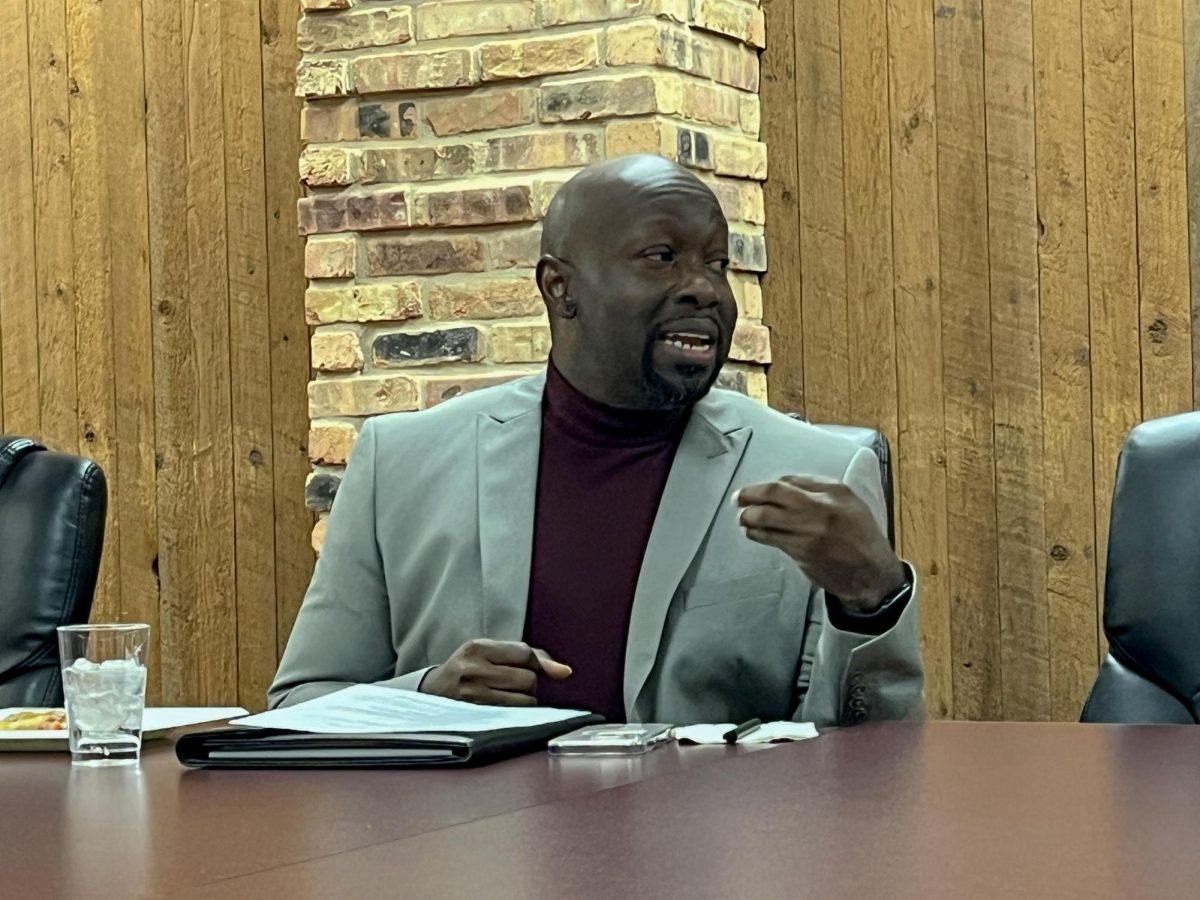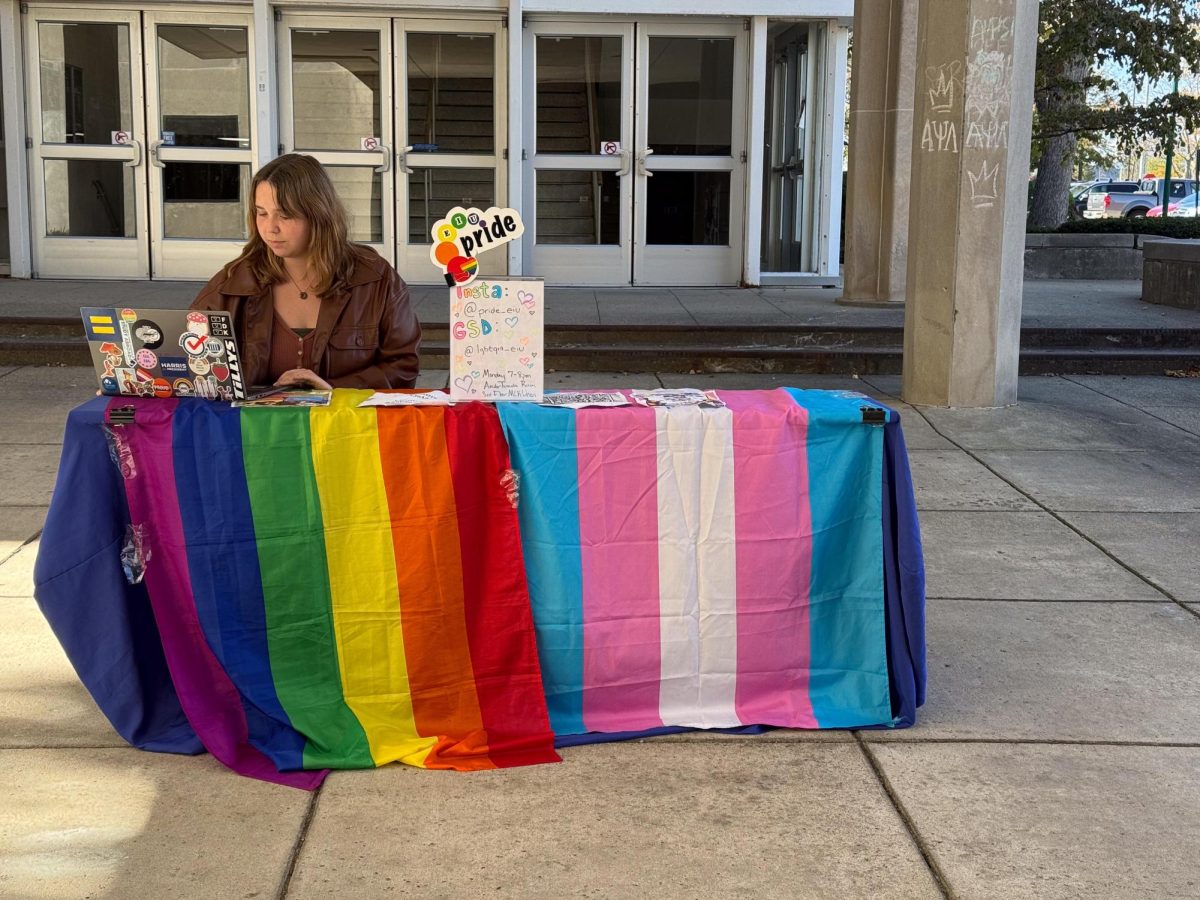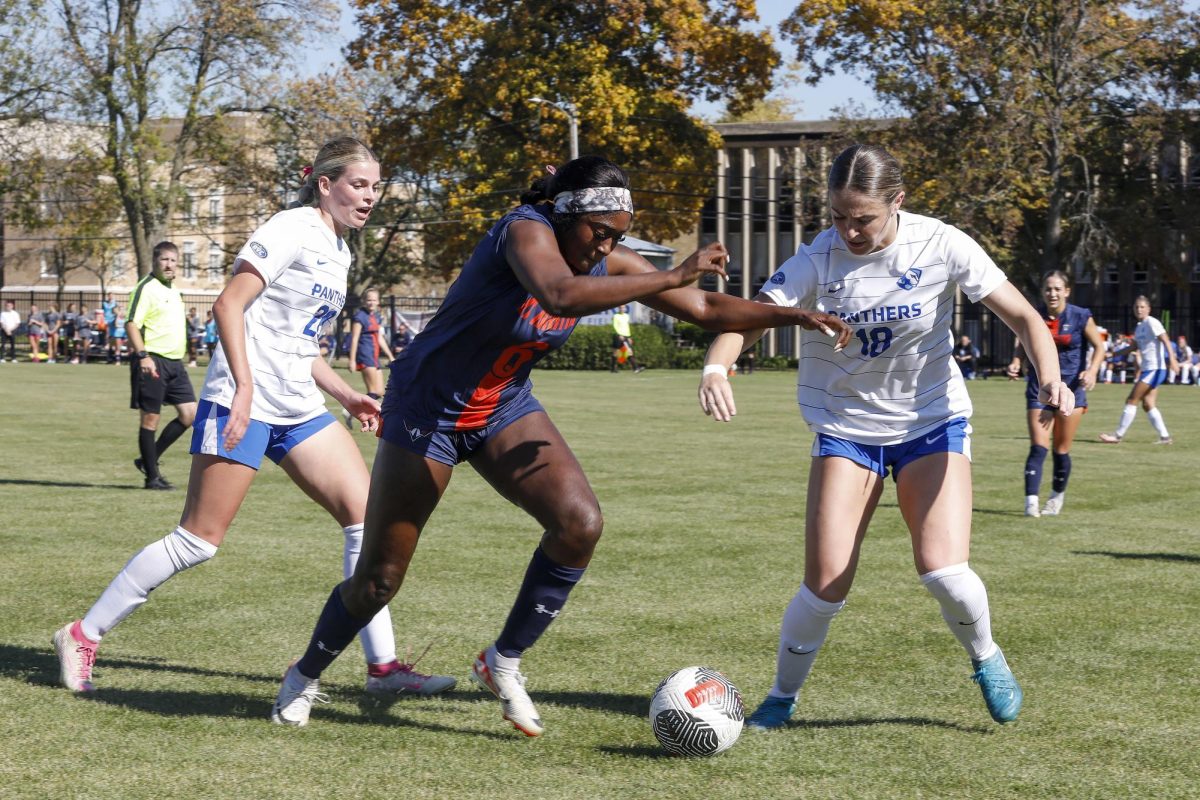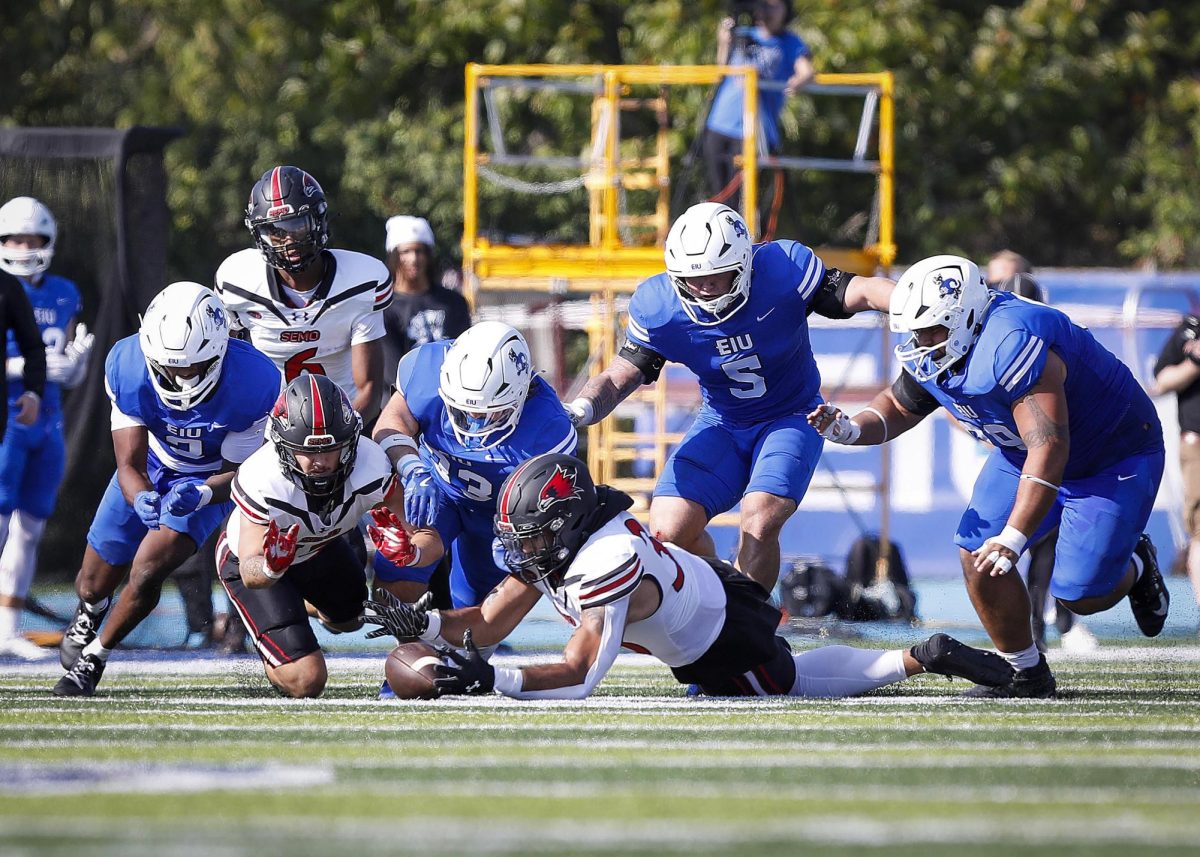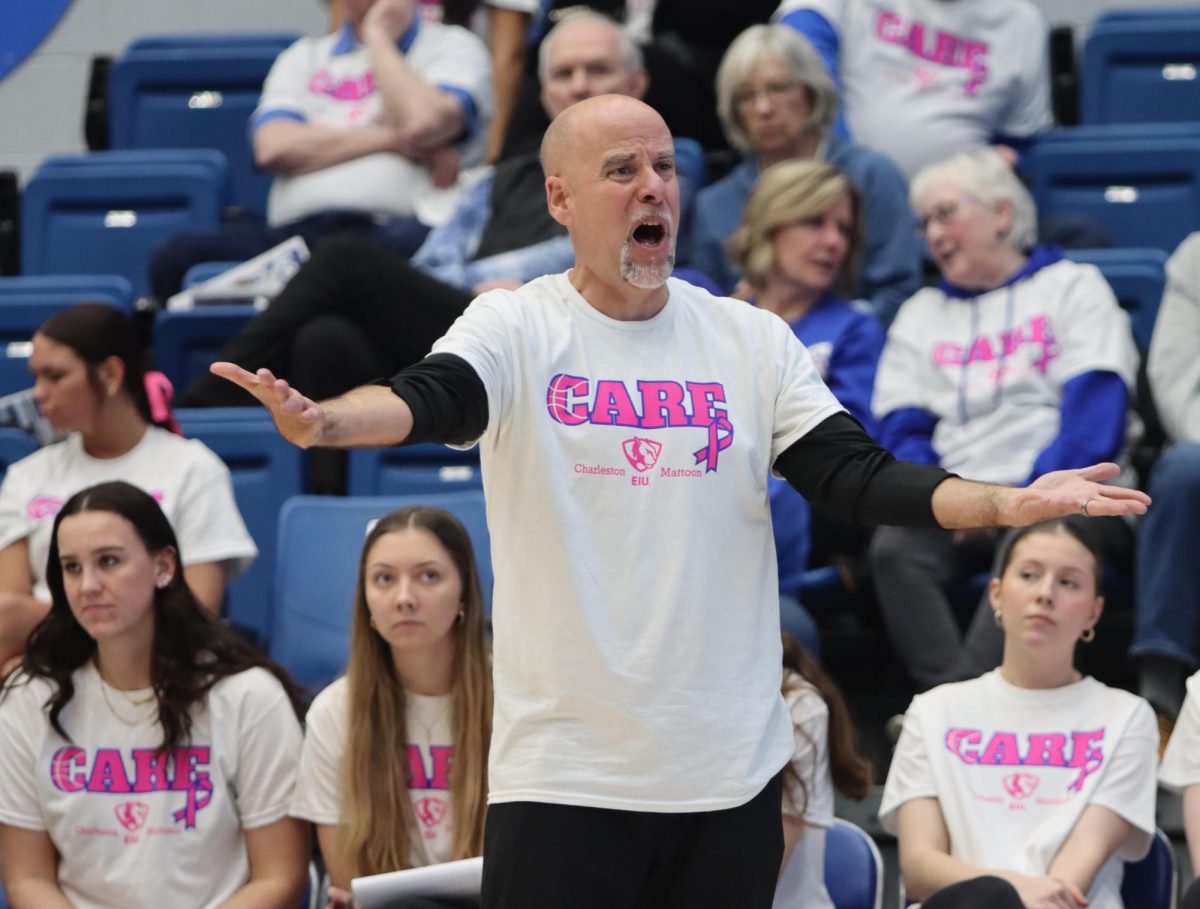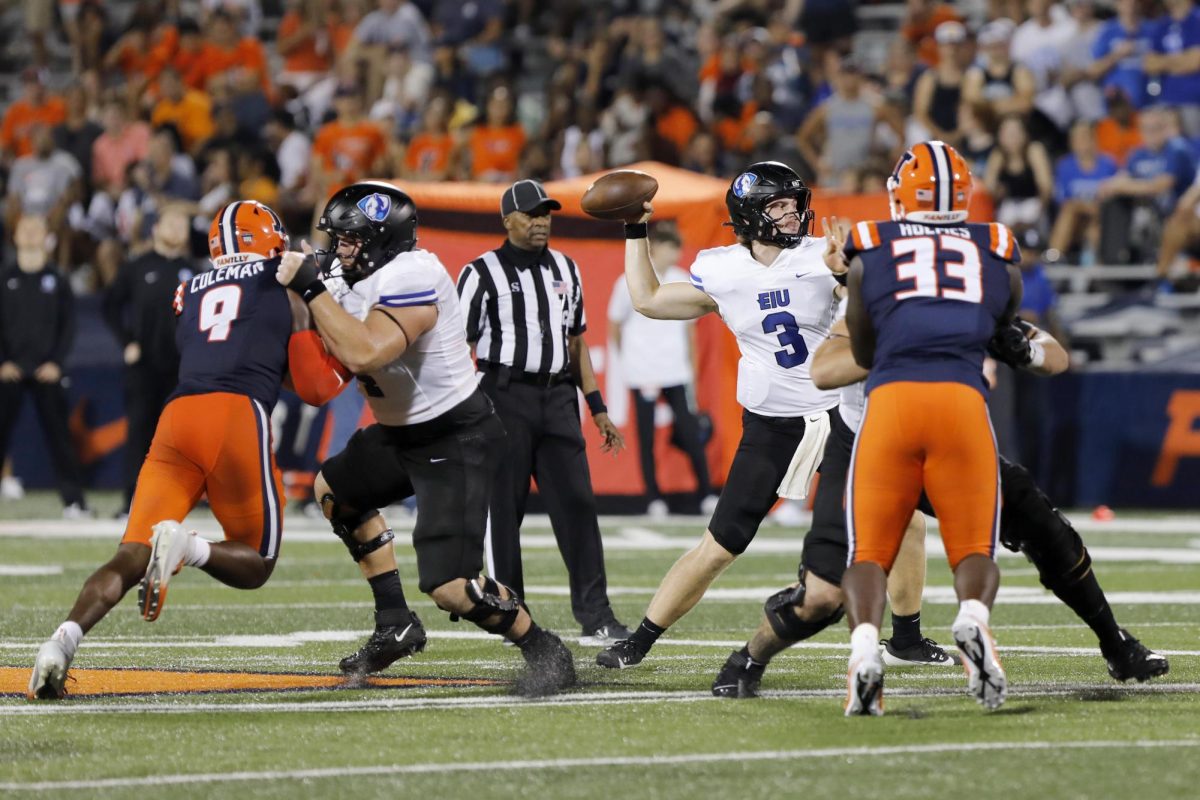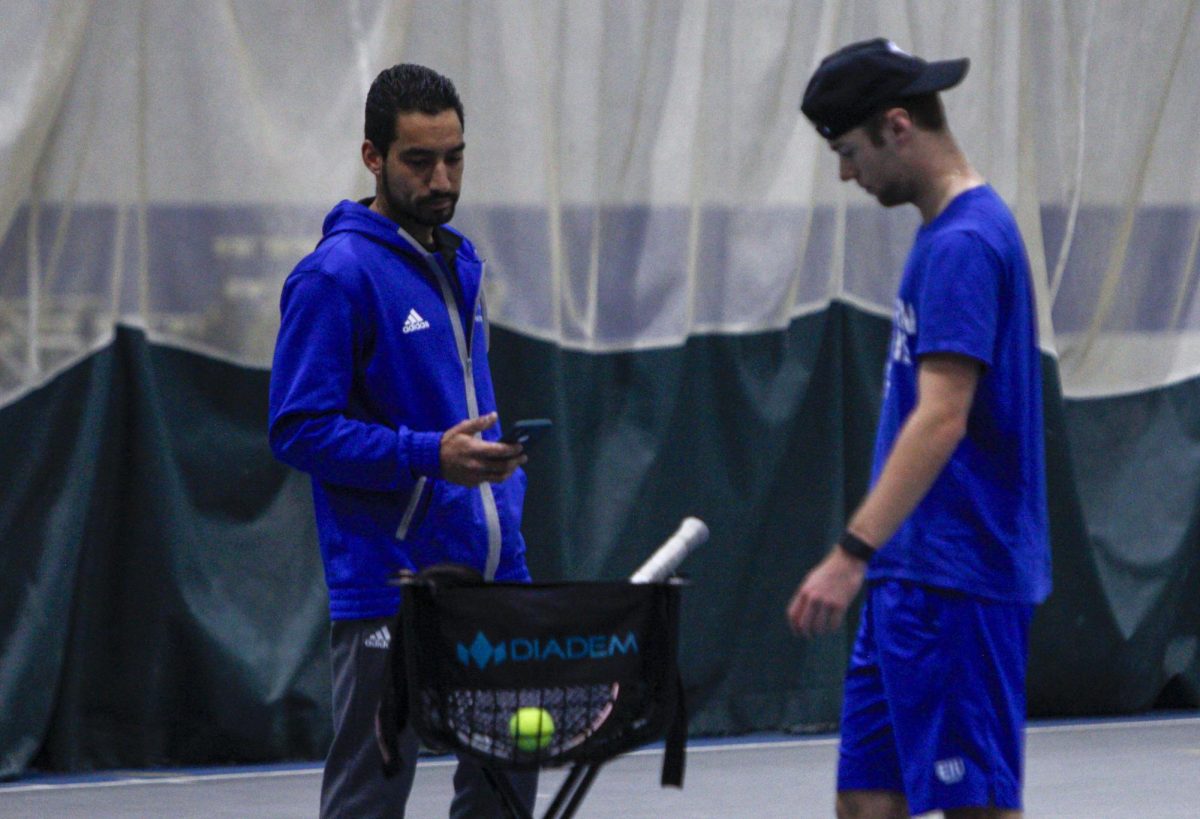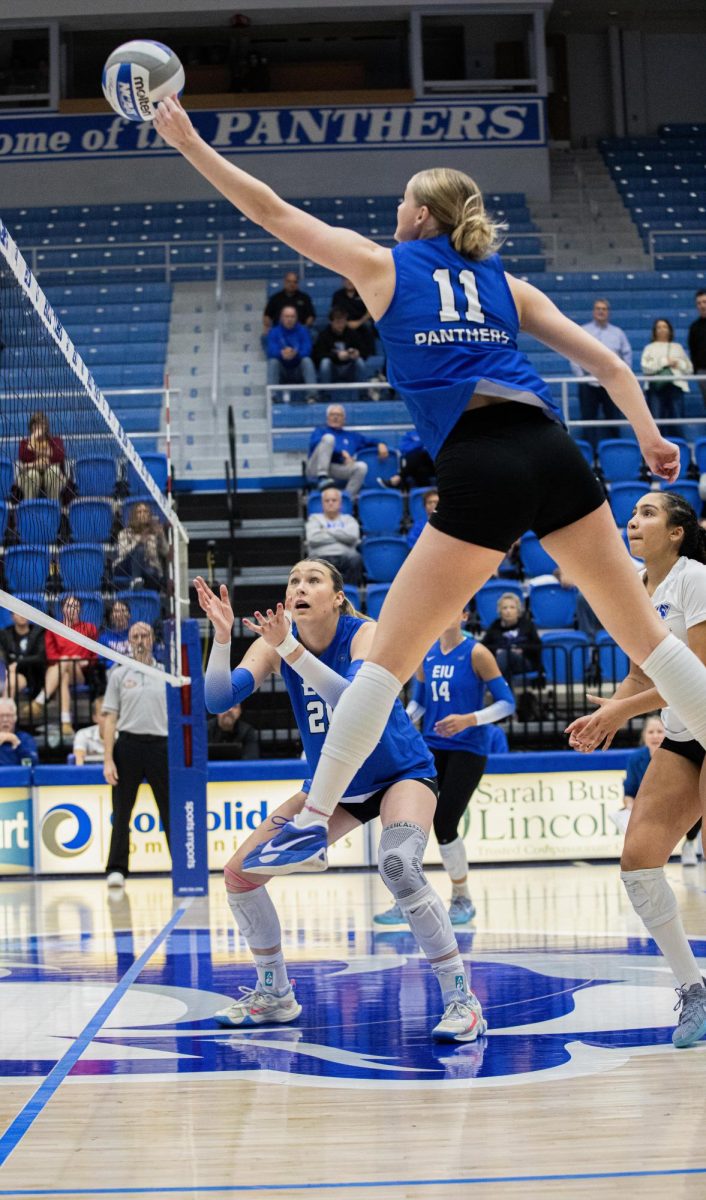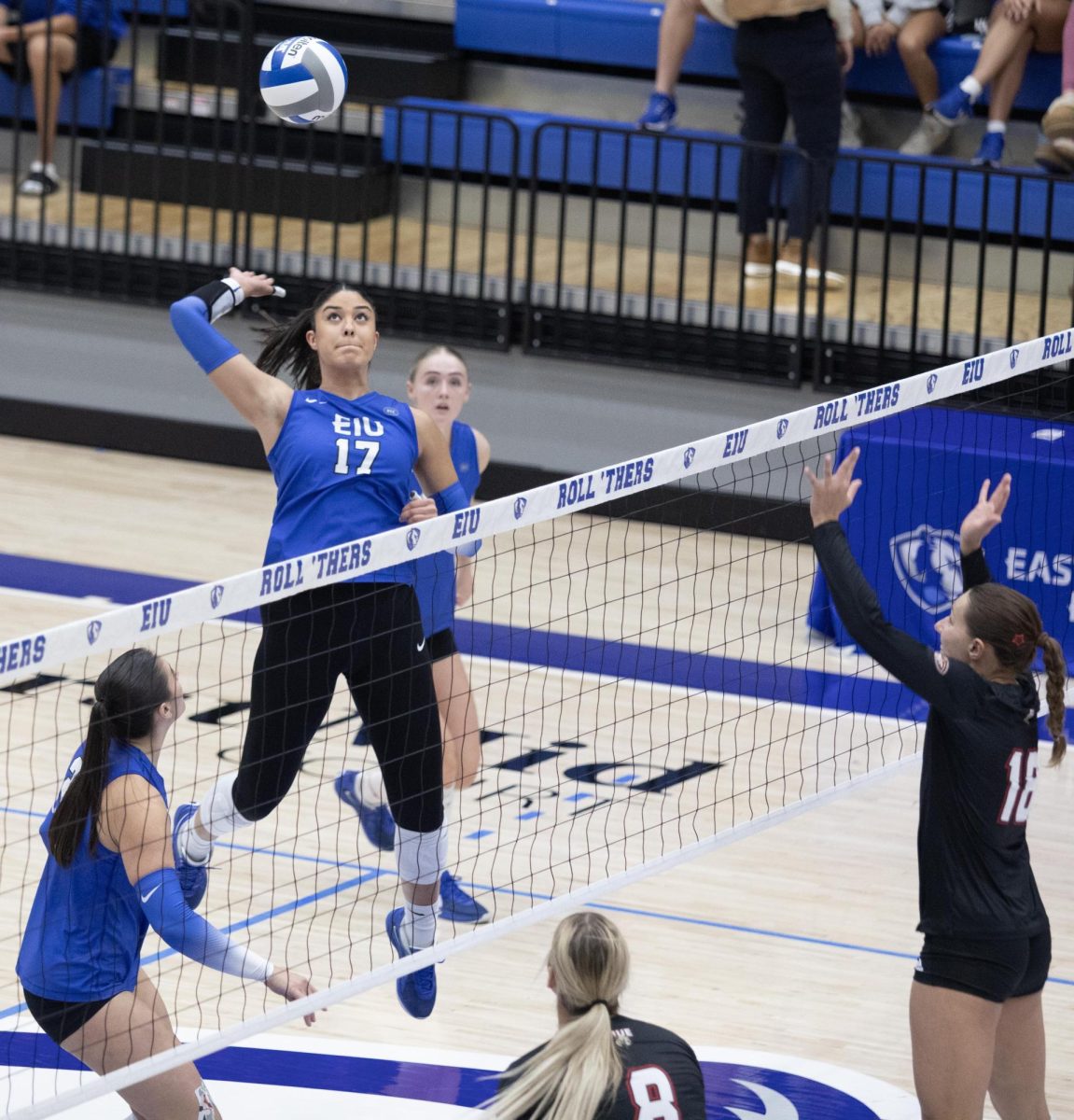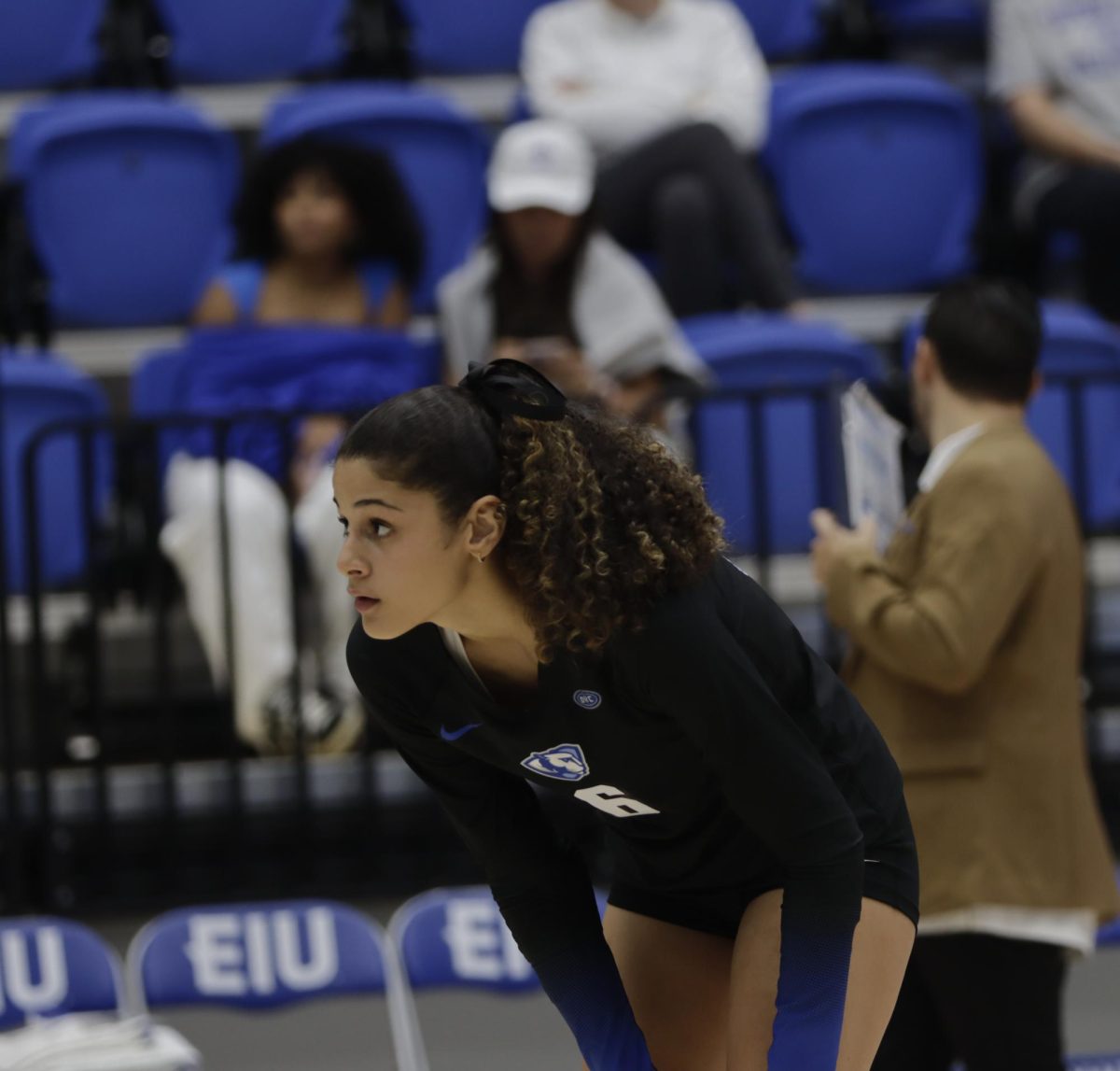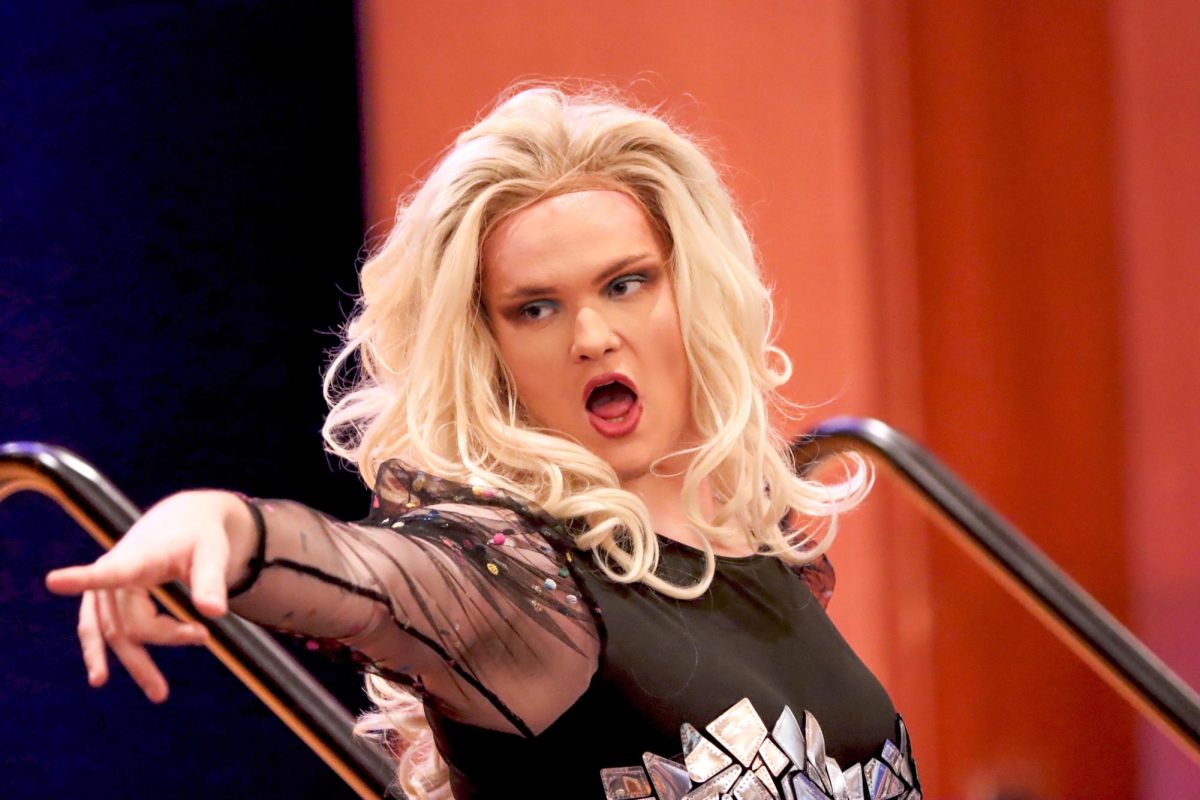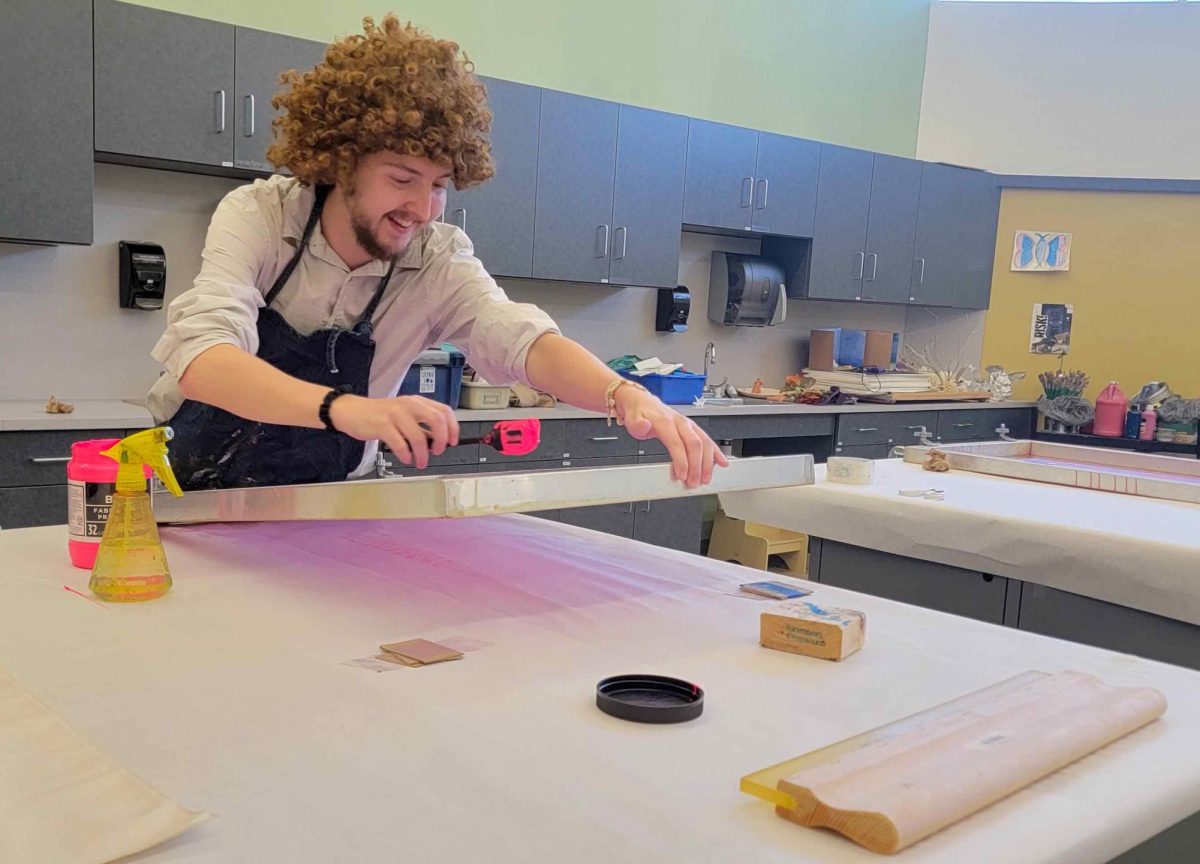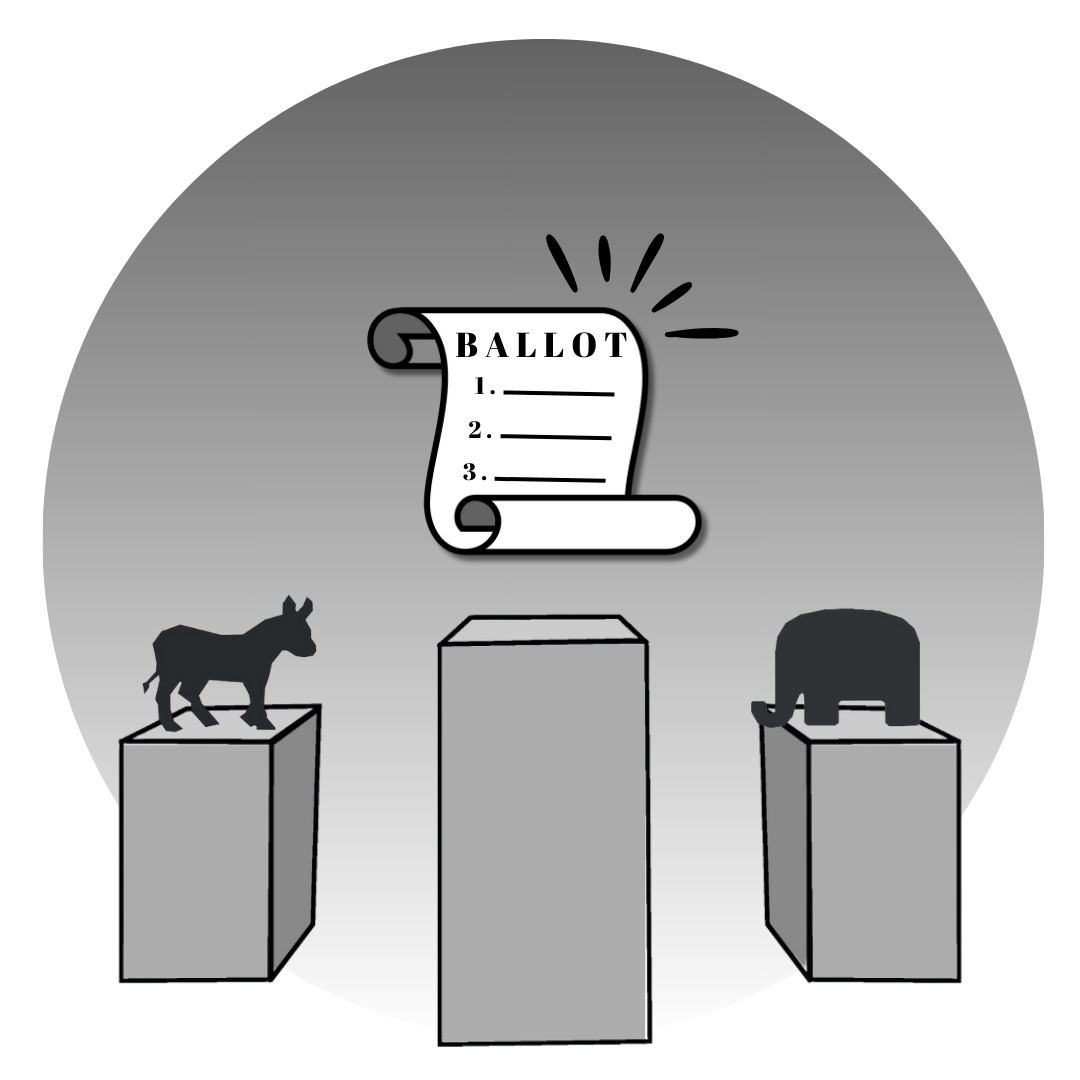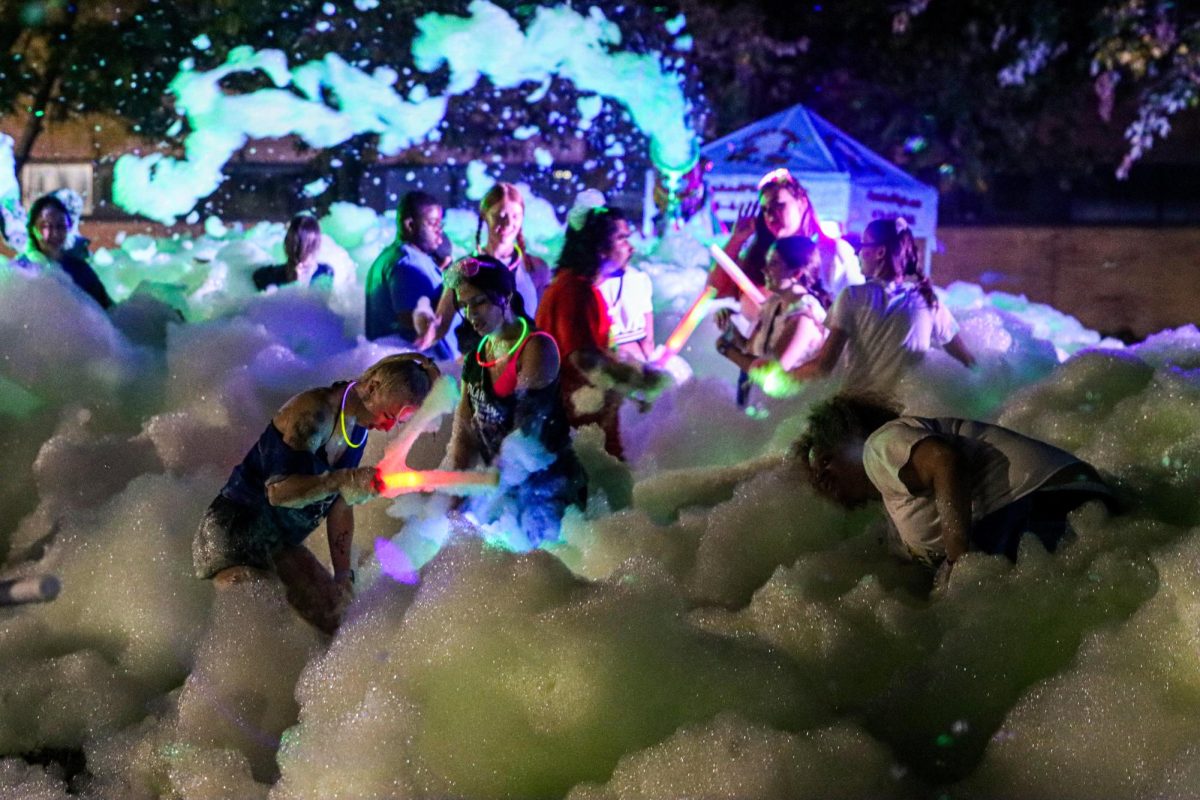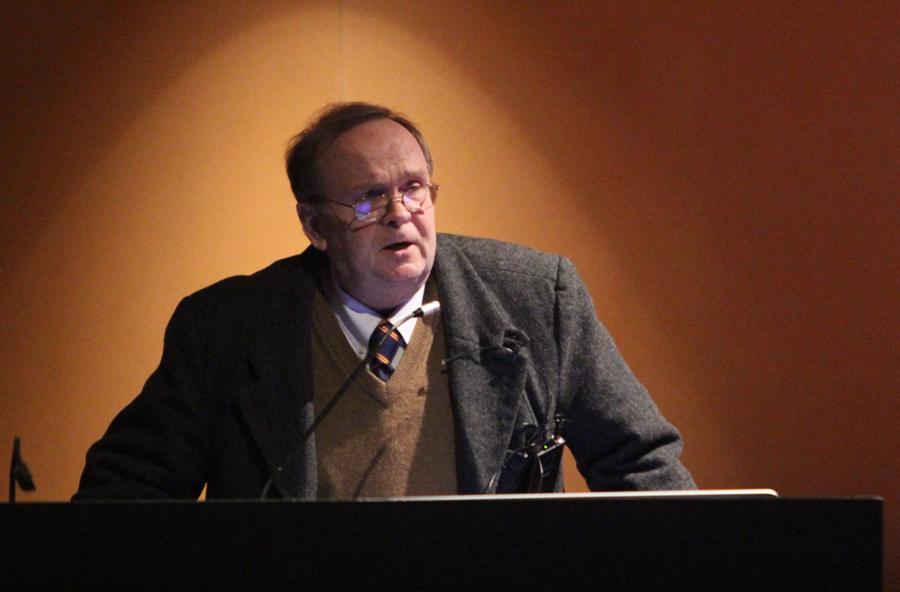Author defines relationship between humanities, science
Author Joseph Carroll gives a presentation on literary Darwinism on Thursday in the Lecture Hall of the Doudna Fine Arts Center.
November 21, 2014
Author Joseph Carroll presented “The Historical Position of Literary Darwinism,” where he defined Literary Darwinism and spoke about his interdisciplinary approach to reading literature.
The Improvement of Undergraduate Instruction and the EIU Humanities Center provided the lecture Thursday in the Doudna Fine Arts Center.
Carroll is the author of two collections of essays known as “Literary Darwinism” and “Reading Human Nature.”
He is also the author of a book titled “Evolution and Literary Theory.”
Carroll said a casual constraint exists within the evolution of biology, the social sciences, and humanities.
He said evolutionary biology is constrained by the “principles that regulate the physical world,” while social sciences are limited by the basic ideas of evolutionary biology.
Carroll said the study of humanities is making use of the ideas from the evolutions of biology and social sciences.
Carroll said a hierarchy of organizational complexity is where humanities lie at the top, making it the highest level.
“Literary scholars are sometimes unhappy with the idea that the humanities are in the receiving end of a whole series of ideas, ” he said.
Carroll said a relationship connects the sciences, and evolutionary biology is the crucial link between them.
“You can talk about physics and chemistry and music to discuss literary works, but it’s not nearly as relevant as the type of principles that emerge in evolutionary biology,” he said. “Because it influences the social sciences, (it) finally gets down to a level of human behavior that is directly relevant.”
Carroll said in today’s society people continue to struggle to add culture and imagination.
He argued that the arts are necessary to humans because humans have imagination.
“They can not live in their imagination, they can’t help but see the whole world as an image, as a story,” he said.
Carroll also argued that literature and the arts are about human nature.
Carroll said artists take the basic human nature created by their particular culture, and shape it in their own way to create particular works of art.
“To study particular works of art you have to go through at least two more layers,” he said. “You have to talk about how an individual culture organizes all the elements of human nature into a coherent system, and how individual artists take that material from a particular culture and organize it into particular works of art.”
Debby Hernandez can be reached at 581-2812 or dhernandez5@eiu.edu.




